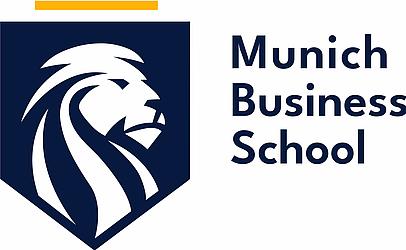This Website uses cookies to improve your visit on our website. More Info
Scholarship for Study in Abroad
Embarking on an educational journey abroad. It offers unparalleled opportunities for personal and academic growth. To support this pursuit of global learning, our guide for scholarships for studying abroad provides a unique chance for dedicated students to access financial assistance and make their international academic aspirations a reality. Join us in exploring the world of education through the lens of diverse cultures and experiences with this scholarship opportunities for studying abroad.
How Much Does it Cost to Study Abroad?
The cost of studying abroad can vary significantly depending on several factors, including the destination country, the specific university or program, the duration of the study, and the lifestyle choices of the student. Here are some key expenses to consider when estimating the cost of studying abroad:
- Tuition and Fees: The cost of tuition and fees can vary widely between countries and universities. Public universities may have lower tuition fees for in-country students, while private institutions and international students may face higher costs.
- Living Expenses: This includes accommodation, food, transportation, and personal expenses. The cost of living can vary greatly depending on the location and the student's lifestyle choices.
- Accommodation: The type of accommodation chosen (on-campus dormitories, off-campus apartments, homestays, etc.) will impact the overall cost. Some programs may include housing in their fees.
- Books and Study Materials: The cost of textbooks and study materials can add to the overall expense. Some programs may provide access to resources, while others require students to purchase their materials.
- Health Insurance: Health insurance is often mandatory for international students. The cost varies depending on the country and the coverage provided.
- Travel Expenses: The cost of round-trip airfare, visa fees, and any required vaccinations should be factored into the overall budget.
- Visa and Application Fees: Visa fees and application processing fees are common expenses associated with studying abroad.
- Language Proficiency Tests: Some programs or countries may require language proficiency tests (such as TOEFL or IELTS), incurring additional costs.
- Extracurricular Activities: Costs related to participation in clubs, sports, or cultural activities should be considered.
- Currency Exchange and Banking Fees: Exchange rates and banking fees can affect the overall cost, especially for international students.
- Emergency Funds: It's advisable to have some funds set aside for unexpected expenses or emergencies.
- Student Visa Renewal: If the study period extends beyond the initial visa duration, renewal fees may apply.
To estimate the overall cost, students should research the specific costs associated with their chosen destination and program. Additionally, considering personal spending habits and lifestyle choices will help create a more accurate budget. Many universities and organizations provide cost of living estimates, and there are online tools that can assist in comparing living expenses in different cities worldwide.
What is a scholarship?
A scholarship is a form of financial aid awarded to students based on various criteria, such as academic achievement, extracurricular involvement, talents, or financial need. Unlike student loans, scholarships do not require repayment. They are essentially gifts that help cover the costs of education, including tuition, fees, and sometimes living expenses.
Scholarships, grants, or student loans - What is the difference?
- Scholarships: As mentioned, scholarships are financial awards given to students based on merit, need, or a combination of both. They do not require repayment, making them a favorable form of financial assistance.
- Grants: Grants are similar to scholarships in that they are also financial gifts, but they are often need-based. They can come from government agencies, private organizations, or institutions and, like scholarships, do not need to be repaid.
- Student Loans: Student loans, on the other hand, are borrowed funds that students must repay with interest. Loans can be federal or private, and repayment typically begins after the student completes their education or leaves school. Unlike scholarships and grants, loans increase the overall cost of education due to interest charges.
Basic information for scholarships for study in abroad
Here are some basic information for scholarships:
-
Who Gives Scholarships:
Scholarships can be provided by various entities, including:- Universities and Colleges: Many educational institutions offer scholarships to attract talented and diverse students to their programs.
- Government Agencies: Government-sponsored scholarships aim to support students pursuing specific fields or facing financial need.
- Private Organizations: Nonprofit foundations, corporations, and community groups contribute to scholarships to invest in education and promote specific causes.
- Individual Donors: Some individuals or families establish scholarship funds to support students in their communities or fields of interest.
-
Why Scholarships Are Offered:
- Merit Recognition: Scholarships often reward academic excellence, outstanding achievements, or specific talents.
- Financial Need: Some scholarships target students facing financial challenges to ensure they have access to education.
- Diversity and Inclusion: Institutions and organizations may offer scholarships to promote diversity and inclusion within their student body.
- Industry Support: Professional associations and companies may provide scholarships to encourage individuals to pursue careers in specific fields.
- Philanthropy: Many scholarship providers view education as an investment in the future and offer scholarships as a way to contribute positively to society.
-
How Scholarships Work:
- Application Process: Students typically apply for scholarships by submitting applications that may include essays, recommendation letters, and details about their achievements and goals.
- Selection Criteria: Scholarship committees review applications based on predetermined criteria, which can include academic performance, community involvement, leadership, and financial need.
- Award Notification: Successful applicants are notified and receive the scholarship, which can cover part or all of their educational expenses.
- Renewal: Some scholarships are renewable, requiring students to maintain a certain level of academic performance or meet specific criteria throughout their studies.

Benefits and Downsides of
Scholarships for Study in Abroad

| Benefits | Financial Assistance: Scholarships provide financial support for tuition, fees, and living expenses. |
|---|---|
| Recognition: Merit-based scholarships recognize and reward academic or other achievements. | |
| Opportunities for All: Various types of scholarships cater to diverse backgrounds, fields of study, and interests. | |
| Encouragement: Scholarships can motivate students to excel academically or pursue specific goals. | |
| Downsides | Competitive Nature: Many scholarships are highly competitive, making it challenging to secure them. |
| Limited Availability: Some scholarships have specific eligibility criteria, limiting the pool of applicants. | |
| Restrictions: Certain scholarships come with conditions, such as maintaining a certain GPA or fulfilling specific obligations. | |
| Application Process: Applying for scholarships can be time-consuming and may require substantial documentation. |
What Will a Study Abroad Scholarship Cover?
The coverage provided by a study abroad scholarship can vary widely depending on the specific scholarship, sponsoring organization, and the terms set by the scholarship provider. However, study abroad scholarships typically cover some or all of the following expenses:

- Tuition and Fees: Many study abroad scholarships cover a portion or the entirety of the tuition and fees associated with the study program. This can include enrollment fees, course materials, and other academic expenses.
- Travel Expenses: Scholarships may include funds to cover travel costs, such as airfare or other transportation expenses to and from the study destination.
- Accommodation: Some scholarships provide financial support for housing or accommodation expenses during the study abroad period. This may include on-campus housing, homestays, or other approved living arrangements.
- Living Expenses: Scholarships may offer a stipend or allowance to cover daily living expenses, including meals, transportation, and personal necessities.
- Health Insurance: Many study abroad programs require students to have health insurance. Some scholarships include coverage for health insurance costs or provide funds to help students obtain the required coverage.
- Visa and Documentation Fees: Study abroad scholarships may cover the costs associated with obtaining a visa or other required documentation for international study.
- Language Learning Programs: If the study abroad program involves language immersion, scholarships may cover the costs of language learning materials or courses.
- Cultural Activities: Some scholarships allocate funds for cultural enrichment activities, excursions, or events related to the study program.
- Research Expenses: For research-focused programs, scholarships may cover expenses related to research projects, fieldwork, or other academic endeavors.
- Emergency or Contingency Funds: Certain scholarships may include provisions for emergency or contingency funds to assist students in unforeseen circumstances.
It's essential for scholarship applicants to carefully review the terms and conditions of each scholarship they apply for to understand the extent of the coverage. Additionally, scholarships may be partial or full, meaning they may cover only specific expenses or the entire cost of the study abroad experience.
Applicants should also consider any eligibility requirements, application deadlines, and post-award obligations, such as maintaining a certain academic standing or participating in community engagement activities.
Always contact the scholarship provider directly for detailed information on what the specific scholarship covers and to address any questions or concerns.
Need more info about the MBS scholarships:
You can find more help on our Scholarships and Financing website.
More Information!What do you need for a scholarship for study in abroad
The requirements for a scholarship application can vary depending on the specific scholarship program and the organization providing the funding. It's crucial for applicants to carefully read the scholarship guidelines and requirements provided by the scholarship provider. Each scholarship is unique, and understanding the specific criteria and rules will increase your chances of a successful application. If in doubt, reach out to the scholarship provider for clarification. However, there are common elements and rules that are often associated with scholarship applications. Here's a general guide on what is typically needed for a scholarship application and some common rules:
Common Requirements for a Scholarship Application:
- Application Form: Most scholarships require applicants to complete an official application form provided by the scholarship provider. This form gathers basic personal and academic information.
- Academic Transcripts: Applicants are usually required to submit transcripts of their academic records. This helps the scholarship committee assess the applicant's academic achievements and eligibility.
- Letter(s) of Recommendation: Many scholarships request letters of recommendation from teachers, professors, employers, or other individuals who can attest to the applicant's character, achievements, and potential.
- Personal Statement or Essay: A personal statement or essay is often required to assess the applicant's goals, achievements, and reasons for applying. This is an opportunity for applicants to express their uniqueness and explain why they are deserving of the scholarship.
- Resume or Curriculum Vitae (CV): Providing a resume or CV helps highlight an applicant's extracurricular activities, work experience, leadership roles, and other relevant experiences.
- Proof of Eligibility: Applicants may need to provide documentation proving their eligibility for the scholarship, such as proof of enrollment in a specific program or proof of citizenship.
- Portfolio or Work Samples (if applicable): Certain scholarships, especially in the arts or creative fields, may require applicants to submit a portfolio or samples of their work.
- Standardized Test Scores (if applicable): Some scholarships may require standardized test scores, such as SAT or ACT scores.
- Financial Information (if applicable): Need-based scholarships may require applicants to provide information about their financial situation, including income and expenses.
Common Rules and Considerations:
- Eligibility Criteria: Scholarships have specific eligibility criteria, such as academic achievements, field of study, citizenship, or financial need. Applicants must carefully review and ensure they meet these criteria.
- Application Deadline: Missing the application deadline is a common reason for disqualification. Submit all required materials well before the specified deadline.
- Adherence to Instructions: Follow the application instructions carefully. Failure to comply with formatting, word limits, or other instructions may lead to disqualification.
- Originality and Authenticity: Plagiarism or submitting fraudulent information can result in disqualification. Be honest, and ensure that your application materials are original and authentic.
- Post-Award Obligations: Some scholarships have post-award obligations, such as maintaining a certain GPA or participating in community service. Be aware of any requirements that come with receiving the scholarship.
- Renewability and Terms: For renewable scholarships, understand the terms for maintaining eligibility in subsequent years.
- Communication: Ensure that you provide accurate contact information. If there are changes to your contact details, inform the scholarship provider promptly.
- Review Process: Scholarship committees often review applications anonymously, so focus on presenting your achievements and qualifications clearly in your application materials.

How to apply for a scholarship?
- Tips and Tricks

| Start Early | Begin your scholarship search and application process well in advance. Some scholarship deadlines are months before the academic year begins. |
|---|---|
| Create a System | Keep track of deadlines, requirements, and application materials for each scholarship. Create a checklist to stay organized. |
| Read Instructions Carefully | Thoroughly review the scholarship application instructions. Follow all guidelines, and make sure you understand the eligibility criteria and submission requirements. |
| Match Your Skills and Goals | Apply for scholarships that align with your skills, goals, and experiences. Tailor your applications to highlight how you meet the specific criteria. |
| Gather Necessary Documents | Collect all required documents, such as transcripts, letters of recommendation, and personal statements, well in advance. Ensure they are up-to-date and tailored to each application. |
| Craft a Strong Personal Statement | Write a compelling personal statement that showcases your achievements, aspirations, and why you are deserving of the scholarship. Be genuine and emphasize how the scholarship aligns with your goals. |
| Highlight Achievements | Clearly outline your academic achievements, extracurricular activities, community service, and any relevant experiences that make you stand out as a candidate. |
| Secure Strong Letters of Recommendation | Request letters of recommendation from individuals who know you well and can speak to your qualifications. Provide them with information about the scholarship and why you are applying. |
| Follow Application Instructions | Adhere to the specified format, word count, and any other instructions provided by the scholarship committee. Failure to follow instructions may result in disqualification. |
| Proofread | Review your application materials for grammar, spelling, and clarity. A well-polished application demonstrates attention to detail and professionalism. |
| Show Impact | Clearly express how receiving the scholarship will impact your education and future goals. Scholarship providers want to invest in individuals who will make the most of the opportunity. |
| Seek Feedback | Before submitting your application, ask a teacher, mentor, or advisor to review it. They can provide valuable feedback and catch any errors you might have missed. |
| Submit Before the Deadline | Aim to submit your application well before the deadline to avoid any last-minute technical issues or delays. Late submissions are typically not considered. |
| Follow Up | After submitting your application, confirm receipt with the scholarship provider if possible. Additionally, be prepared for potential interviews or follow-up questions. |
| Apply for Multiple Scholarships | Diversify your scholarship applications to increase your chances of success. Apply for a range of scholarships that match your qualifications and interests. |
Remember, persistence is key. Keep refining your approach based on feedback and experiences, and don't be discouraged by rejections. Every application is a learning opportunity that can contribute to your overall success.
How to find a scholarship?
Finding a scholarship involves several steps, and here are some effective ways to begin your search:

- Online Scholarship Databases: Utilize scholarship search engines and databases. Websites like Fastweb, Chegg, and Scholarship.com allow you to create a profile and match you with relevant scholarship opportunities.
- University and College Resources: Check with the financial aid or scholarship offices or website at the universities or colleges you are interested in. They often have information about scholarships available to their students.
- Government Programs: Explore scholarship programs offered by government agencies. Many governments provide financial assistance for education, so check with relevant departments or agencies.
- Professional Associations and Organizations: Look into scholarships offered by professional associations related to your field of study or career goals. These organizations often support education within their industry.
- Community and Nonprofit Organizations: Local community groups, foundations, and nonprofit organizations may offer scholarships. Check with community centers, religious organizations, and local charities.
- Employers and Companies: Some employers and companies offer scholarships or educational assistance programs for employees and their families. Inquire with your employer about available opportunities.
- Specialized Websites and Forums: Explore websites and forums dedicated to scholarship discussions. Online communities often share information about lesser-known scholarships and tips for successful applications.
- Social Media and Networking: Join social media groups or forums related to education and scholarships. Networking with peers and professionals can provide valuable insights and information.
- Library Resources: Visit your local library and explore scholarship directories and reference materials. Librarians can also guide you to relevant resources.
- High School Guidance Counselors: If you are a high school student, consult your school's guidance counselor. They often have information about scholarships and can provide guidance on the application process.
- Attend Scholarship Fairs and Events: Participate in scholarship fairs and events in your community or online. These events can connect you with scholarship providers and give you a chance to learn more about available opportunities.
Remember to thoroughly read the eligibility criteria and requirements for each scholarship before applying. Tailor your applications to highlight your achievements, experiences, and goals that align with the specific scholarship criteria.
What to do if you don’t fit the scholarship standards?
While having an exceptional GPA can boost your scholarship chances, there are still opportunities for individuals who consider themselves average. You simply need to market yourself properly and find the right scholarships for your strong points. Remember, scholarship providers are often interested in the potential for growth and the unique qualities each candidate brings to the table. Tailor your applications to align with the specific criteria of each scholarship, and don't be afraid to showcase your individuality and the qualities that make you stand out, even if you consider yourself an average Joe. Here are five tips to increase your chances of securing a scholarship:
Tips:
- Highlight Unique Skills and Experiences: Emphasize any unique skills, talents, or experiences you possess. This could be involvement in community service, leadership roles, participation in extracurricular activities, or specific hobbies. Highlighting your well-rounded personality can make you stand out.
- Demonstrate Passion and Commitment: Showcase your passion and commitment to your chosen field of study or a particular cause. Scholarship providers often look for candidates who are genuinely enthusiastic and committed to making a difference. Share specific instances where you've demonstrated dedication and perseverance.
- Craft a Compelling Personal Statement: Write a compelling personal statement that tells your story. Use this opportunity to explain why you are pursuing higher education, what challenges you've overcome, and your future goals. Be authentic, and let your personality shine through the narrative.
- Seek Out Niche Scholarships: Look for scholarships that cater to specific niches, interests, or characteristics. Some scholarships are designed for students with unique backgrounds, career aspirations, or personal circumstances. Explore options that align with your individuality.
- Participate in Relevant Work or Volunteering: Engage in relevant work or volunteering experiences related to your field of interest. This hands-on experience not only enhances your skills but also demonstrates a practical application of your knowledge and a commitment to your chosen field.
Examples:
Here are examples of scholarships in Europe that you could use this tips on:
- ECB Scholarship for Women
- The aim is to transform the lives of the chosen women who receive this scholarship. This scholarship aspire to aid their education and enhance their career prospects, particularly in the domains of central banking and banking supervision. The ECB Scholarship for Women is explicitly crafted to assist women from low-income backgrounds within the EU in pursuing postgraduate studies in the fields of economics, statistics, engineering, and computing.
- Germany Social Impact Scholarship
- This scholarship acknowledges candidates actively involved in social impact projects or community service. Applicants are assessed based on their hands-on experiences, demonstrating how their work has positively influenced society.
Remember to check the specific eligibility criteria and requirements for each scholarship, as they may vary. Tailor your applications to align with the values and goals of the scholarship providers, showcasing how you embody the qualities they are seeking in a candidate.
The next chart shows a lot of different types of scholarships, with different criteria, that you can also use the tips on.
Types of scholarships
Various types of scholarships exist, catering to different needs and circumstances. Here are some common types:
| Type | Description | Benefits | Downsides |
|---|---|---|---|
| Merit-Based Scholarships | Merit-based scholarships are awarded to students who demonstrate exceptional academic, athletic, or artistic achievements. These scholarships recognize and reward outstanding performance in a specific area. | Awarded based on academic, athletic, artistic, or other achievements. | May be highly competitive, and recipients are often expected to maintain a certain level of performance. |
| Need-Based Scholarships | Need-based scholarships are designed to provide financial support to students with demonstrated financial need. These scholarships aim to make education more accessible for individuals facing economic challenges. | Designed for students with financial need, helping to cover tuition and living expenses. | Limited availability, and eligibility is contingent on financial circumstances. |
| Minority Scholarships | Minority scholarships are targeted at underrepresented groups in education, promoting diversity and inclusivity. These scholarships aim to address disparities by providing opportunities to individuals from specific ethnic or demographic backgrounds. | Aimed at supporting underrepresented groups in higher education. | Eligibility is often restricted to specific demographics, limiting the pool of applicants. |
| Athletic Scholarships | Athletic scholarships are awarded to student-athletes who have excelled in sports. These scholarships support individuals pursuing higher education while contributing to collegiate sports programs. | Awarded to student-athletes for their performance in sports. | Limited availability, and recipients are often committed to participating in collegiate sports. |
| Subject-Specific Scholarships | Subject-specific scholarships are tailored to students pursuing studies in particular fields or disciplines. These scholarships provide financial assistance to individuals committed to advancing knowledge in specific academic areas. | Geared toward students pursuing studies in a particular field or discipline. | May have specific eligibility criteria and limited availability. |
| International Scholarships | International scholarships facilitate educational opportunities for students studying abroad. These scholarships are designed to support individuals pursuing degrees in foreign countries, promoting cross-cultural exchange. | Support students studying abroad or those from other countries. | May involve stringent eligibility criteria, such as language proficiency. |
| Research Scholarships | Research scholarships support individuals engaged in academic research at various levels. These scholarships provide funding for research projects and contribute to advancements in knowledge and innovation. | Support individuals engaged in academic research at various levels. | May require a competitive application process, and recipients are often expected to contribute to research. |
| Government Scholarships | Government scholarships are funded by governmental bodies to support a wide range of academic pursuits. These scholarships play a crucial role in promoting education, research, and cultural exchange at the national and international levels. | Funded by government bodies, supporting a wide range of academic pursuits. | Eligibility criteria may vary, and competition can be high. |
Scholarship for Study in Abroad for MBS
Munich Business School aims to empower ambitious and dedicated potential students to pursue their studies, irrespective of their financial circumstances. Alongside diverse financial assistance choices, the institution provides partial scholarships to prospective students who embody global awareness, responsibility, and an entrepreneurial spirit. To be considered for these limited scholarships, applicants must submit a Personal Statement and additional supporting documentation along with their university application. Please be aware that due to the limited number of scholarships available, early application is advisable.

The MBS Bavarian Scholarship supports talented and committed future students who are enrolled in the program Bachelor Bilingual Track. The scholarships have a maximum amount of EUR 3,090 per semester (10-50% on the first and second Bachelor semesters). The scholarship is also aimed at Pre-Bachelor students.
To apply for one of these scholarships, enclose a personal statement (one page with title “MBS Bavarian Scholarship”) together with your application for the Bachelor program and convince us you are eligible. Applications for this scholarship are considered only if the following requirements are met:
- Good average grade in school diploma
- Willingness to commit to MBS (e.g. student initiative, MBS ambassador at trade fairs and events)
Please note: Early application is recommended as the number of scholarships is limited.
The MBS Explorer Scholarships are intended for future students who do not have the financial resources required for a private education. The scholarships contribute up to EUR 3,090 per semester (10-50% on the first and second Bachelor semesters). The scholarship is also aimed at Pre-Bachelor students.
To apply for one of these scholarships, enclose a personal statement (one page with title “MBS Explorer Scholarship”) together with your application for the Bachelor program at MBS and convince us you are eligible. Applications for this scholarship are considered only if the following requirements are met:
- Justification and proof of economic circumstances
- Willingness to commit to MBS (e.g. student initiative, MBS ambassador at trade fairs and events)
Please note: Early application is recommended as the number of scholarships is limited.
The MBS BEST Scholarship is intended for top-performing, committed future students. The scholarships have a maximum amount of EUR 3,090 per semester (10-50% on the first and second Bachelor semesters). The scholarship is also aimed at Pre-Bachelor students.
To apply for one of these scholarships, enclose a personal statement (one page with title “MBS BEST Scholarship”) together with your application for the Bachelor program at MBS and convince us you are eligible. Applications for this scholarship are considered only if the following requirements are met:
- Average grade of “very good” in school diploma
- Willingness to commit to MBS (e.g. student initiative, MBS ambassador at trade fairs and events)
- Voluntary commitments (proof is desirable)
Please note: Early application is recommended as the number of scholarships is limited.
You are courageous and take new paths, e.g. by volunteering in an association, by committing yourself to social diversity, inclusion and belonging, by being the first child in your family to take the step to university or by starting your own business at a young age?
The MBS Explorer Scholarship is aimed at committed future students and all those who do not have the financial means to afford private studies. The scholarships amount up to EUR 4,000 of the overall tuition fee. (Up to EUR 2,000 on the 1st and 2nd master's semester).
The following requirements must be met in order to be considered for the scholarship:
- voluntary commitment (e.g. in politics, environment & sustainability, religion or in sports, e.g. as an active athlete or as a trainer in a club (proof desirable)) and/or
- founding of a company/engagement in a family business and/or
- justification of the economic situation as well as
- willingness to get involved at MBS (e.g. participation in student initiatives or as MBS Ambassador at trade fairs or events).
The application for this scholarship is made together with the study place application. Please attach a personal statement (one page with subject "MBS Explorer Scholarship") and convince us of your eligibility.
Please note: An early application is recommended as the number of scholarships is limited.
The MBS BEST Scholarship is aimed at particularly high-performing and committed future students of all master's programs. The scholarships amount up to EUR 4,000 of the overall tuition fee. (Up to EUR 2,000 on the 1st and 2nd master's semester).
The requirements for this scholarship are:
- very good grade average in the bachelor's degree certificate as well as
- willingness to get involved at MBS (e.g. participation in student initiatives, MBS Ambassador at fairs or events)
The application for this scholarship is made together with the study place application. Please attach a personal statement (one page with subject "MBS BEST Scholarship") and convince us of your eligibility.
Please note: An early application is recommended as the number of scholarships is limited.
Are you globally minded with a cultural awareness to act consciously in an international environment?
Please explain what globally minded means to you personally and to what extend it is shaping your professional life.
In order to apply for one of our MBA scholarships, please answer the question in a personal statement. Please upload the document within your initial online application (Full-time) for a study place. A subsequent application is not possible.
Due to the limited number of scholarships an early application is recommended. Applicants who convince us of their suitability will be granted up to EUR 4,000 on the overall tuition fee.
Do you act responsibly by incorporating ethical and sustainable considerations into your decisions?
Please describe which activities from your personal and professional life are related to responsibility or responsible actions.
In order to apply for one of our MBA scholarships, please answer the question in a personal statement. Please upload the document within your initial online application (Full-time) for a study place. A subsequent application is not possible.
Due to the limited number of scholarships an early application is recommended. Applicants who convince us of their suitability will be granted up to EUR 4,000 on the overall tuition fee.
Do you have an entrepreneurial mindset and the ability to create innovative and creative solutions?
Please describe in what way entrepreneurship and innovation plays a role in your professional life and tell us more about your personal entrepreneurial skills.
In order to apply for one of our MBA scholarships, answer the question in a personal statement. Please upload the document within your initial online application (Full-time) for a study place. A subsequent application is not possible.
Due to the limited number of scholarships an early application is recommended. Applicants who convince us of their suitability will be granted up to EUR 4,000 on the overall tuition fee.


Study in Abroad at Munich Business School
Munich Business School (MBS) stands out as a privately recognized university located in Munich, holding accreditation from the German Council of Science and Humanities. Offering a spectrum of business education programs, MBS caters to Bachelor, Master, MBA, and DBA levels. What distinguishes the MBS experience is not just the small class sizes, passionate faculty, and acclaimed programs; it's the personal touch. At Munich Business School, you're not a mere statistic, but an individual with a name and purpose – the very reason we start our day.
As a compact, private institution, we prioritize listening to your queries and providing a study environment customized to your preferences. Our faculty, experts in their respective fields, impart skills that truly set you on the path to success. Beyond comprehensive business knowledge, we instill values and skills that anchor sustainability and social responsibility, fostering leadership in corporations. Delve deeper into our impact through our detailed Impact Report.
Munich Business School plays a vital role in contributing to the economy and society. We cultivate an inspiring academic setting in Munich that empowers individuals to pursue entrepreneurial success while upholding respect and responsibility towards fellow individuals and our natural resources.
Adopting a holistic approach, we encourage people to comprehend their role in society, recognizing the impact they have and competently applying and advancing their business knowledge. We extend a global academic and professional perspective to students worldwide, facilitated by collaborations with international partner universities.
In collaboration with our partners in the business and academic realms, we establish a platform for motivated and curious individuals with an entrepreneurial spirit to connect, share perspectives, and mutually learn. Across all our initiatives, we prioritize practical relevance and uphold high-quality standards.
The studies at MBS focus on the international market. A large part of the course content is taught in English and MBS students come from all over the world.
Internationality is also expressed through the semester abroad. Students spend the last semester at one of our more than 60 partner universities around the world.
Students work on a business project for a real company. In doing so, they apply the theoretical knowledge gained during their studies in practical applications.
Exciting Degree Programs in Munich




Enthusiastic? Request information material now!
FAQ
For study abroad, the DAAD (German Academic Exchange Service) scholarship is highly recommended for Germany. DAAD offers a variety of scholarships supporting international students, researchers, and professionals to study and conduct research in Germany. These scholarships are known for their comprehensive support, covering various academic disciplines and providing financial assistance to ensure a successful study experience in Germany.
Yes, it is possible to obtain a full scholarship to study in Europe. Many European universities and institutions offer scholarships that cover tuition fees, living expenses, and sometimes additional costs such as travel and books. These scholarships are often awarded based on academic merit, financial need, or other specific criteria.
Popular scholarship programs in Europe include Erasmus Mundus, DAAD (German Academic Exchange Service), Chevening (for the UK), and various national scholarship programs in European countries. It's essential to carefully read and follow the instructions provided by each scholarship provider during the application process.
In the region of Europe, the Erasmus Mundus scholarship program is widely recognized and prestigious. Erasmus Mundus is a European Union initiative that supports high-quality joint master's or doctoral programs offered by European universities. The program aims to enhance the quality of European higher education and promote intercultural understanding through cooperation with partner countries.
Erasmus Mundus scholarships are competitive and attract students from around the world. They cover tuition fees, living expenses, and even include travel costs in some cases. The program is known for fostering international collaboration and providing students with the opportunity to study in multiple European countries.
In Germany, individuals who are most likely to receive a scholarship typically exhibit strong academic performance, demonstrate leadership skills, engage in community involvement, express clear educational and career goals, and show financial need if applicable. Emphasizing these qualities in the scholarship application can enhance the chances of success.










